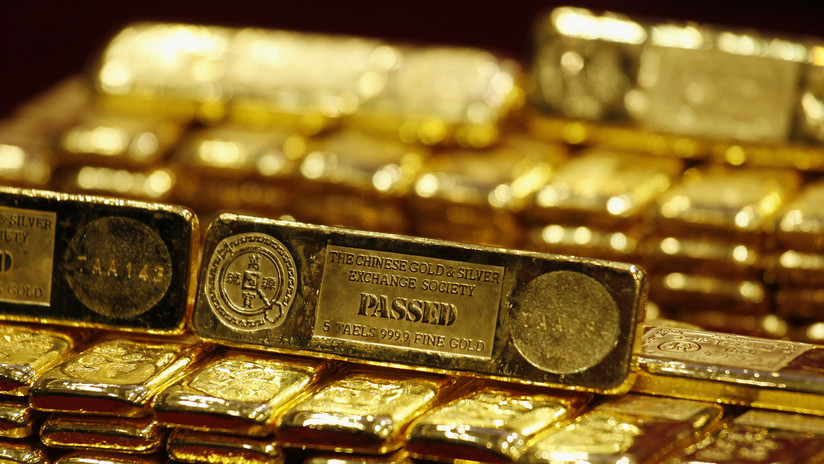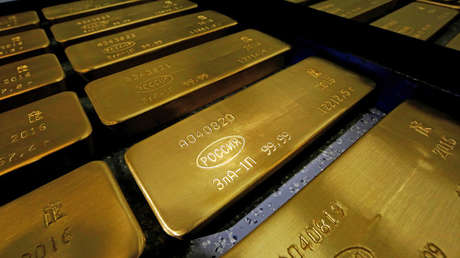
miércoles, 13 de febrero de 2019
China incrementa sus reservas de oro dos meses seguidos

domingo, 22 de julio de 2018
EL RECICLAJE NO ES GRATIS
SEATTLE: ¿Pagarías más para reciclar? Es posible que tenga que hacerlo debido a la nueva política, la espada de China.
Durante décadas, la mayor parte del reciclaje en el oeste de Washington fue a China, para ser procesado y reutilizado. Pero en 2017, los funcionarios del gobierno chino decidieron que la calidad del reciclaje que Estados Unidos enviaba al país no era lo suficientemente buena, en pocas palabras, había demasiada basura en el reciclaje ordenado.
En respuesta, China endureció las restricciones sobre qué tipo de reciclaje aceptaría el país, restricciones que virtualmente dejaron de reciclar los envíos de los EE. UU. A China.
Ahora el reciclaje se está acumulando y también lo están los costos. Los recicladores anticipan que el costo pronto pasará a los residentes a través del aumento de las facturas de basura.
EL RECICLAJE NO ES GRATIS
"Reciclar no es gratis y creo que mucha gente piensa eso", dijo Kevin Kelly, gerente general de Recology CleanScapes, una empresa de reciclaje que ordena materiales en Seattle.
Eso no podría estar más lejos de la verdad. Kelly dijo que cuesta dinero manejar los camiones, las máquinas y pagarles a las personas para que conviertan nuestro reciclaje en un producto básico.
Hasta hace poco, el costo de recolectar y clasificar el reciclaje era menor que los ingresos obtenidos por la venta de los materiales.
El reciclaje fue rentable, especialmente la venta de papel mezclado. En el verano de 2017, según Brad Lovaas, el director ejecutivo de los recicladores de la Asociación de Reciclaje y Rechazo de Washington podría vender una tonelada de papel mezclado por alrededor de $ 100.
Ahora que China prohibió la importación o varios tipos de materiales reciclables, el precio bajó a cero y, en algunos casos, los recicladores tienen que pagar por el procesamiento de los materiales
sábado, 17 de febrero de 2018
Descubren la mayor mina de oro de la historia de China
Este depósito podría producir oro continuamente y a plena capacidad durante 40 años.
La compañía Shandong Gold Group ha anunciado este martes el hallazgo de la mayor mina de oro de China en la provincia oriental de Shandong, informa 'China Daily'.
Se reporta que el depósito, situado en la región de Laizhou-Zhaoyuan (península de Jiaodong), tiene más de 2 kilómetros de largo y alcanza los 67 metros en su parte más ancha. Debido a sus características geológicas especiales, esta región cuenta con los depósitos de oro más grandes del país.
El valor de la mina
Hasta la fecha, se han detectado 382,58 toneladas de reserva -con un grado medio de oro de 4,52 gramos por tonelada-, pero esta cifra podría aumentar hasta las 550 toneladas a medida que avance la búsqueda en los próximos dos años. Esto se traduce en un valor potencial de 150.000 millones de yuanes (unos 22.000 millones de dólares).
Se reporta que si se procesaran 10 toneladas al día, la mina podría producir oro continuamente y a plena capacidad durante 40 años.
How to Properly Recycle Electronics Avoiding Environment, Human Rights Abuse
How to Properly Recycle Electronics Avoiding Environment, Human Rights Abuse
Not all aging gadgets will be safely dismantled and have their components scrapped or re-used when dropped off at local US recycling centers, according to Basel Action Network (BAN), an environmental nonprofit.
Electronics recycling often involves a complex, multi-step supply chain. Many of the downstream operations are in the developing world, where waste is exported for treatment. Once it arrives for processing, oversight can be minimal.
This can lead to unsafe labor and environmental conditions having a devastating impact on the countries receiving electronics recyclables according to BAN. The ostensibly well-intended act of recycling has the potential to harm workers, their communities, and the environment. BAN suggests that greater transparency in electronics recycling supply chains is one way companies could help.
As part of its long-standing commitment to responsible processing of used electronics, HP is disclosing the names and locations of its recycling vendors.
By bringing transparency to its electronics recycling supply chain, HP seeks to inspire other tech companies, retailers, and distributors to follow suit as well as to acknowledge the work of recycling partners to meet higher expectations. This transparency also helps HP customers feel confident their end-of-life equipment is adequately treated to ensure data and privacy protection.
"HP is disclosing its recycling partners to raise the bar for transparency in our industry and to highlight the high standards we set for those vendors," said Annukka Dickens, HP Director of Human Rights and Supply Chain Responsibility. "We challenge other companies in and outside of the high tech industry to follow our lead and disclose recycler vendor standards and performance, as well as the list of recycling vendors they employ globally."
Ties Back to the Circular Economy
A key part of HP's circular economy strategy is responsible recycling of used electronics, which encompasses industry-leading recycling and reuse standards, a robust recycler audit program, and close engagement with recycling partners.
In addition to transparency in HP recycling programs, they are also reducing resource consumption by reinventing product design to extend the life of products, shifting to service models, and transforming how whole industries design, make, and distribute products through disruptive technologies, such as 3D printing.
The End-of-Life Electronics Challenge
HP knows from experience that recycling responsibly is no small effort. The company is one of high tech's most active recyclers. They have recaptured and recycled over 3.3 billion pounds of computer and printing hardware and 682 million ink and toner cartridges since in the past 30 years.
HP also offers takeback and recycling programs to keep used electronics and printing supplies out of landfills in more than 70 countries and territories through its HP Planet Partners program. It also collaborates with governments and industry stakeholders to promote innovative solutions for managing electronics equipment at the end of its life cycle.
As part of the company's stringent recycling vendor management process, HP requires every specialist vendor to execute environmentally-responsible processing techniques, comply with relevant government regulations, and achieve additional commitments like ethical labor practices and conformance to the Basel Convention, which limits shipment of non-functional electronics between countries.
In addition, vendors must attain third-party certification, such as e-Stewards, R2, or WEEELABEX, where applicable, and must also submit to regular audits.
Collaboration to Ensure Performance
In 2015, HP conducted audits at 58 facilities in 20 countries, including audits to follow-up on previous findings and confirm ongoing commitment to responsible practices and improved performance.
In extreme cases, vendors are not allowed to continue recycling on HP's behalf if they do not work to address nonconformance identified during audits.
"People should know how and where their equipment is recycled. We encourage customers to ask questions about what really happens to the equipment they return," Dickens said.
